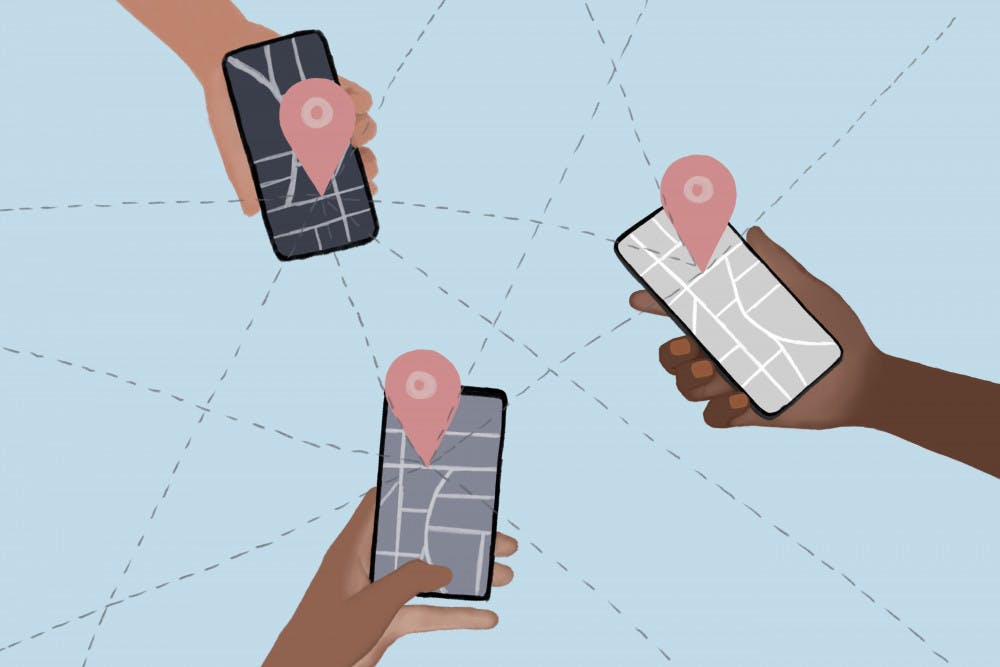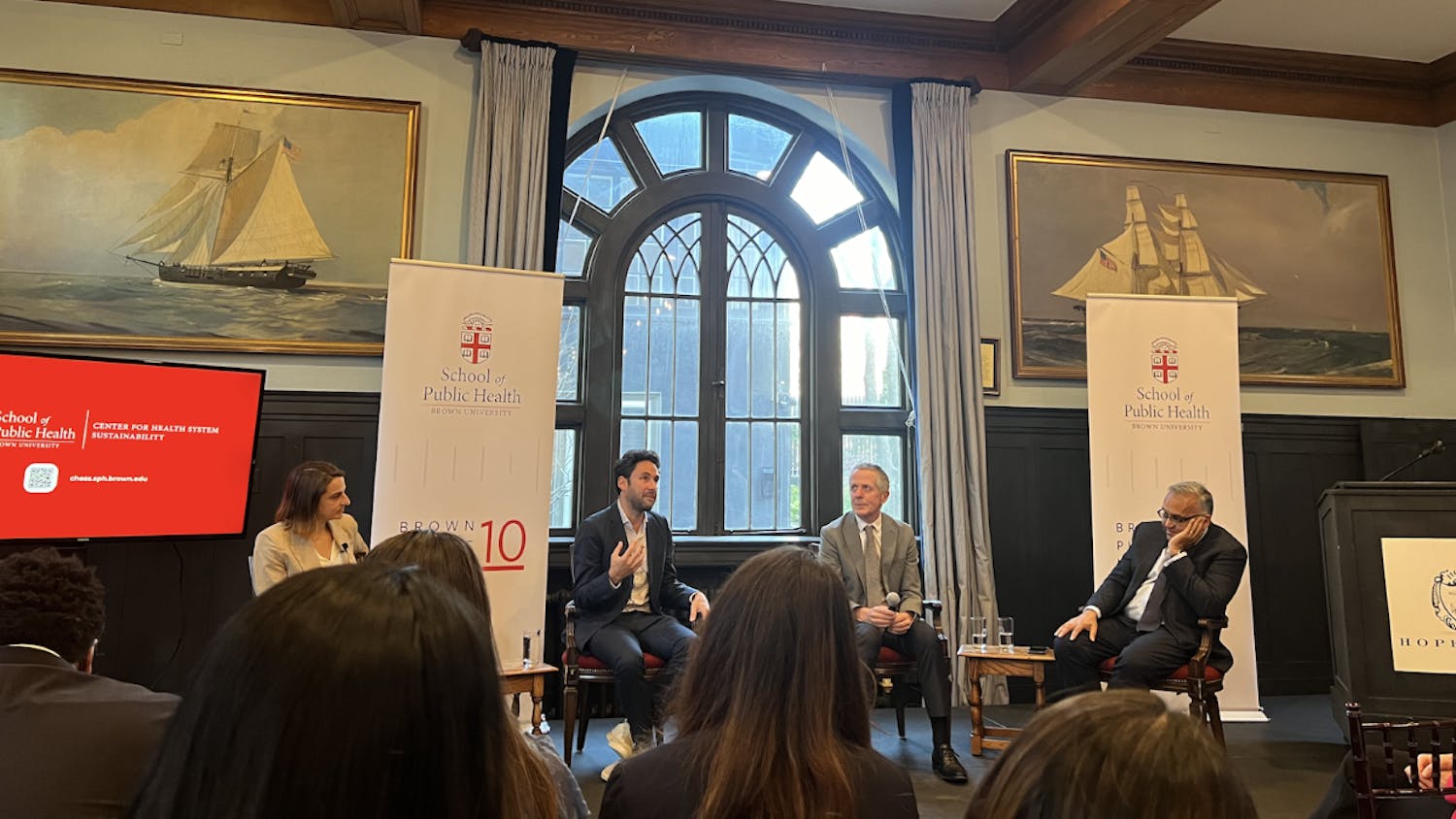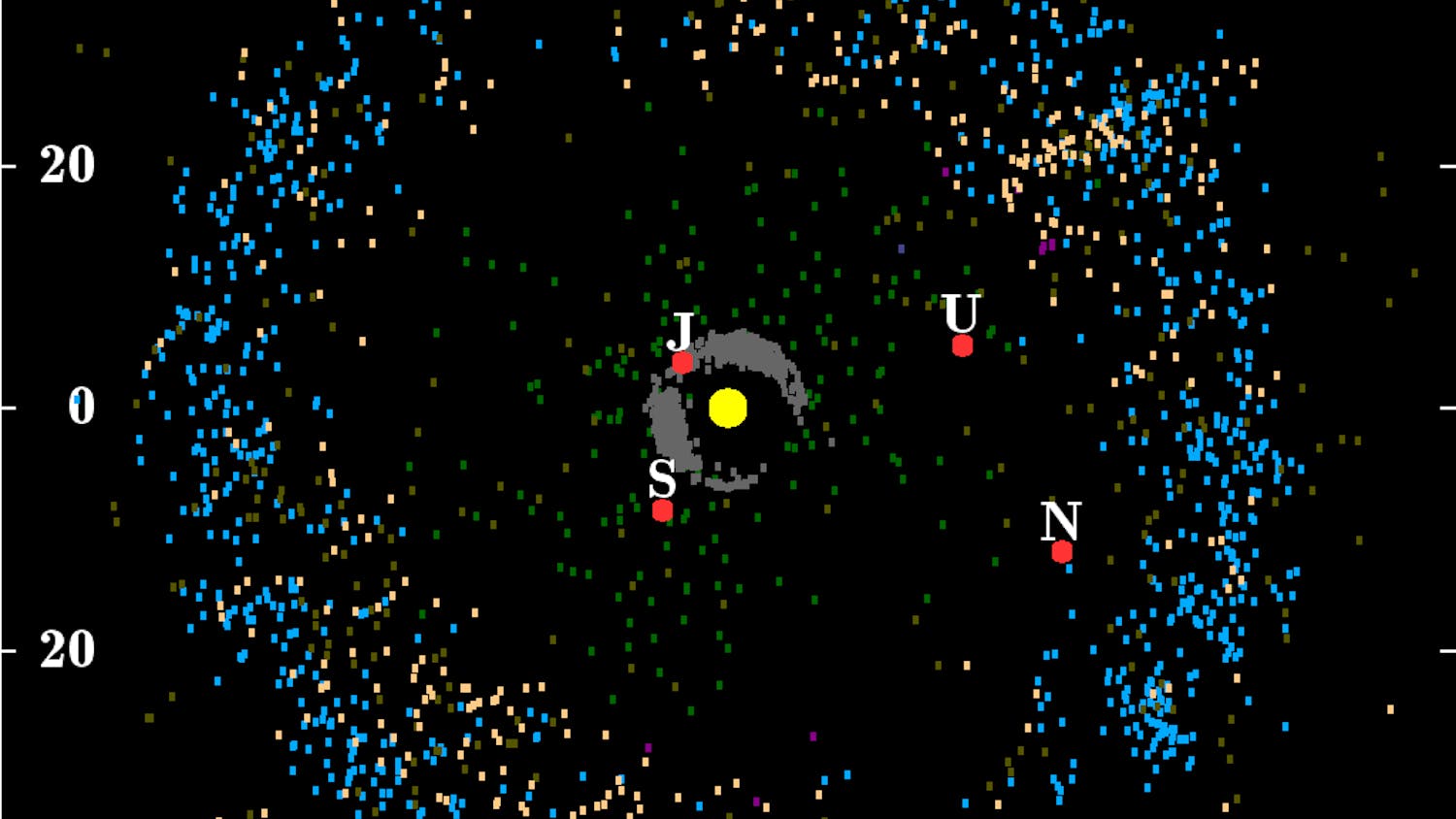From personal logs to phone applications and software, many methods of contact tracing are being put to use at the University, state and national levels to track COVID-19 infections. Contact tracing is a key strategy for preventing further spread of COVID-19 by individuals that have been exposed, according to the Centers for Disease Control and Prevention.
To combat the spread of the pandemic, current contact tracing protocols at both the University and the Rhode Island Department of Health involve interviewing people who test positive for the virus to identify exposed contacts. RIDOH has also incorporated a digital tool — the CRUSH COVID RI app — that works in tandem with interviews. So far, the app has close to 80,000 downloads, according to Joseph Wendelken, a public information officer for RIDOH.
The CRUSH COVID RI app is a “one-stop shop” of resources for Rhode Island residents, Wendelken said. The app includes a “My Location Diary” function, which tracks the locations that the user visits and stores that data on their device.
“When someone is identified as a positive case, we call that case a ‘new case investigation,’ and that involves an interview or a conversation about where they’ve been in the recent past… (and) about the close contacts they’ve had,” Wendelken said. During the interview, the individual will be asked to choose one of two options that they are comfortable with: to share the location data from the CRUSH COVID RI app directly with RIDOH, or to reference the data during the conversation to help them remember where they have been.
In the absence of a vaccine, case investigations and contact tracing are two of the most powerful tools available to stop the spread of COVID-19, Wendelken said. In order to reduce the rate of spread most directly, people who are exposed should be quarantined right away. This precaution is “so important because there are some people who will spread COVID-19 without any symptoms,” he said.
The CRUSH COVID RI app, which assists with this process, was developed with privacy as an absolute priority, Wendelken said. Location data older than 20 days is automatically deleted.
The University, working closely with RIDOH, is taking a similar approach by bringing current staff into additional positions as contact tracers to interview confirmed cases. University Human Resources has employed five accredited contract tracers who are “actively involved in the process when a case (among faculty and staff) requires” their skills, as well as four more contact tracers on standby, wrote media relations and content specialist Maggie Spear in an email to The Herald.
Contact tracers will virtually reach out to infected individuals and ask them to develop a list of everyone they can remember that fits the criteria of a contact, according to the University’s Plan for a Healthy and Safe 2020-21 released in July. Both the University and RIDOH use the CDC’s classification of a “contact” as any individual within six feet of an infected person for more than 15 minutes.
University community members are expected to maintain personal logs of their daily contacts to aid in the contact tracing process.
Personal logs provide a “sense of how much someone is interacting with other people, which is an important part of thinking how likely viral spread is. Everybody should be keeping an active record of their contacts,” said Emily Oster, co-chair of the Healthy Fall 2020 Task Force and professor of economics.
Still, the University strongly recommends students to use the CRUSH COVID RI app as part of its partnership with the state, Oster said.
A survey administered to undergraduate students in May found that the majority of students — 78 percent of around 5,700 responses — would be willing to install contact tracing technology that would notify and track students that have been in contact with a positive COVID-19 case.
Rhode Island’s CRUSH COVID RI app uses GPS data to help track contacts.
But newly developed technology by Apple and Google this year promises a novel digital method that is both effective and privacy-protecting, according to Professor of Computer Science Anna Lysyanskaya and the Apple website. This method relies on Bluetooth-based exposure notification technology that, starting this month, would be incorporated into Apple’s iOS 13.7 and Google’s Android 6.0 software, according to the Washington Post and CNN.
Lysyanskaya supports the use of such technology for contact tracing. She was a member of a team of researchers called PACT: Private Automated Contact Tracing, based at the Massachusetts Institute of Technology, that had previously recommended that these companies employ this technology, according to her op-ed in the Providence Journal.
Apple and Google have updated phone operating systems so that public health officials can elect to send notifications to contacts through the operating system without the need for an app once someone is diagnosed with COVID-19, according to the Apple website.
Since the pandemic started, automated contact tracing technology has been in demand by governments because manual contact tracing is time-consuming; a newly infected person may expose others before a contact tracer notifies them. Additionally, manual contact tracing only works if the confirmed case knows the contact information of everyone they are in proximity to, which is often not the case, Lysyanskaya wrote in an email to The Herald.
While Rhode Island continues to analyze alternate means of contact tracing besides its app, Wendelken wrote in an email to The Herald that CRUSH COVID RI presently “is the most effective at combating COVID-19” in the state.

ADVERTISEMENT




